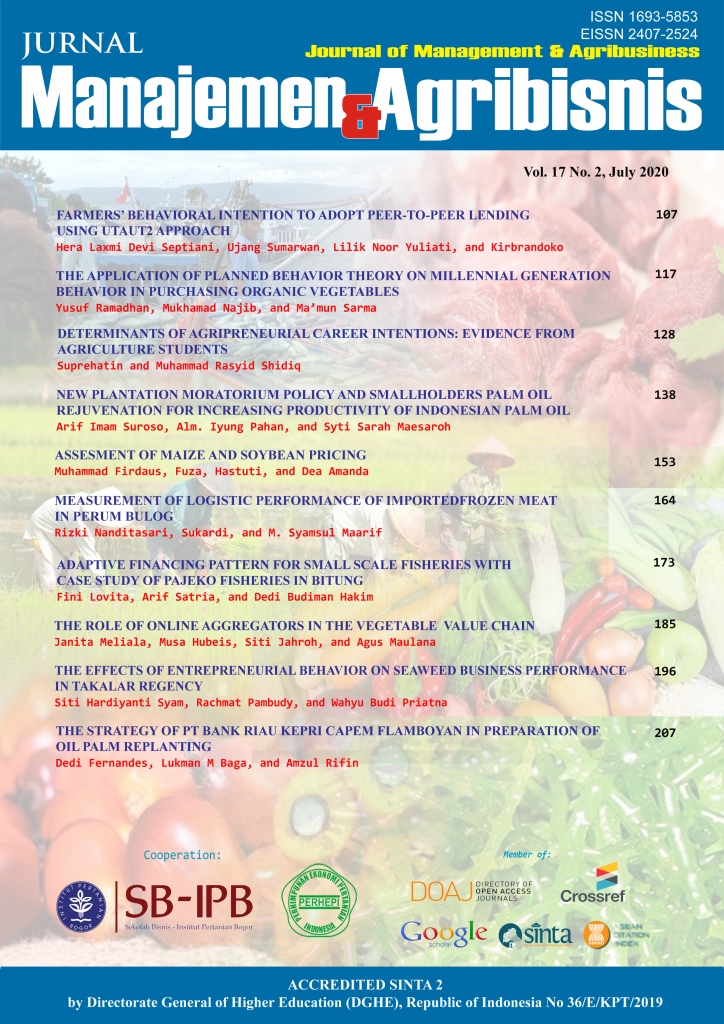Measurement of Logistic Performance of Imported Frozen Meat in Perum Bulog
Abstract
Perum BULOG received a mission to import frozen meat by the government in accordance with Presidential Regulation of the Republic of Indonesia Number 48 of 2016. As a company engaged in food logistics, Perum BULOG is expected to be able to carry out imported frozen meat logistics activities to meet domestic needs. Logistics activities of imported frozen meat in Perum BULOG are divided into three stages, starting from the assignment mechanism, import mechanism, and sales mechanism. This causes the realization of frozen meat has not been achieved in accordance with the assignment. This study aims to measure the logistics performance of the imported frozen meat logistics activities carried out by the State Logistics Agency. The analytical method used the Logistic Scorecard Model, by identifying business strategies to obtain KPIs, and compiling logistical performance measurements. The results obtained by the logistics performance score of 2.691. This means that logistical performance for imported frozen meats run by Perum BULOG is at level 2, so Perum BULOG's logistics performance is poor. The improvement recommendation is by making a map of the frozen meat commodity business and making a direct shipping distribution strategy.
Keywords: activities of logistics, logistics performance measurement, logistic scorecard, perum bulog, frozen meat
Authors
Authors who publish with this journal agree to the following terms:
- Authors retain copyright and grant the journal right of first publication with the work simultaneously licensed under a Creative Commons Attribution License that allows others to share the work with an acknowledgement of the work's authorship and initial publication in this journal.
- Authors are able to enter into separate, additional contractual arrangements for the non-exclusive distribution of the journal's published version of the work (e.g., post it to an institutional repository or publish it in a book), with an acknowledgement of its initial publication in this journal.
- Authors are permitted and encouraged to post their work online (e.g., in institutional repositories or on their website) prior to and during the submission process, as it can lead to productive exchanges, as well as earlier and greater citation of published work (See The Effect of Open Access).

